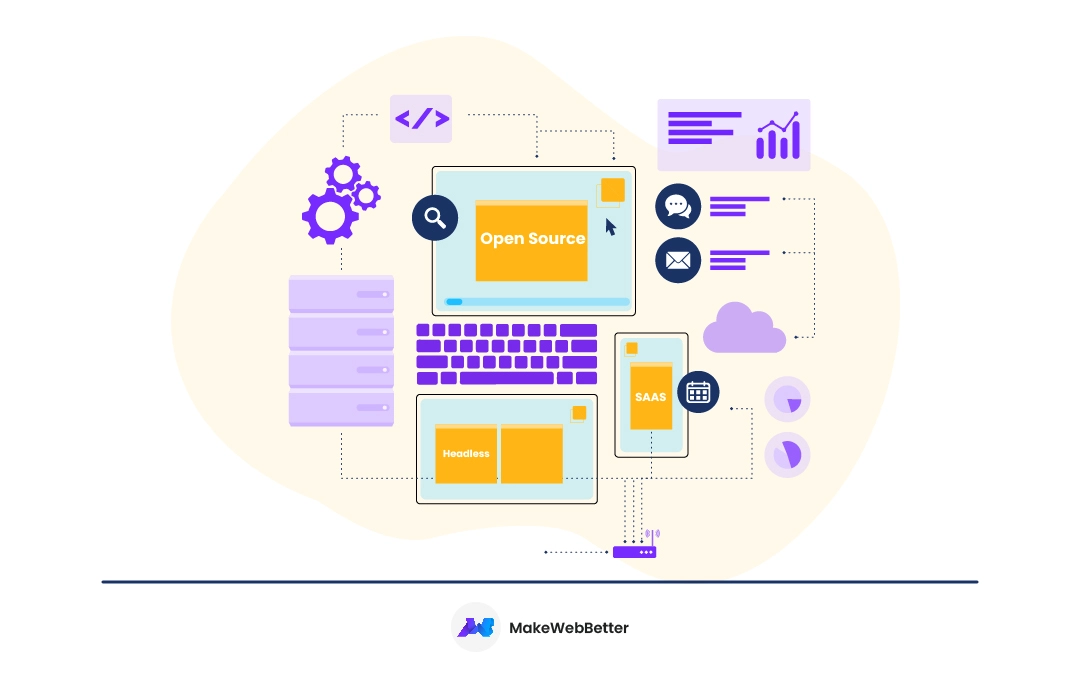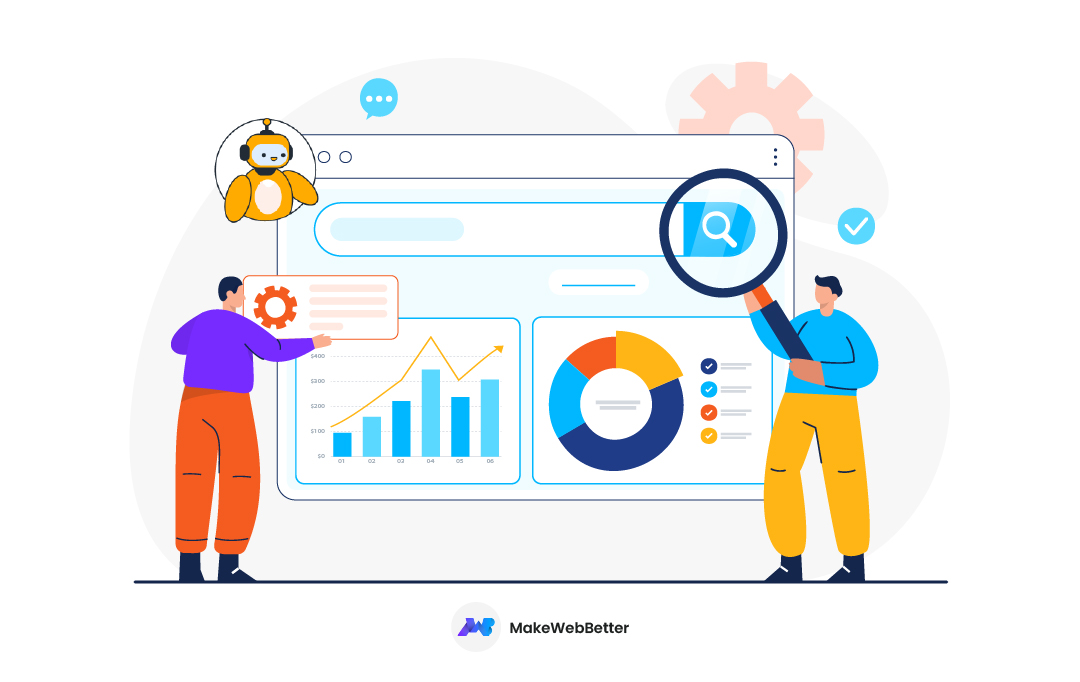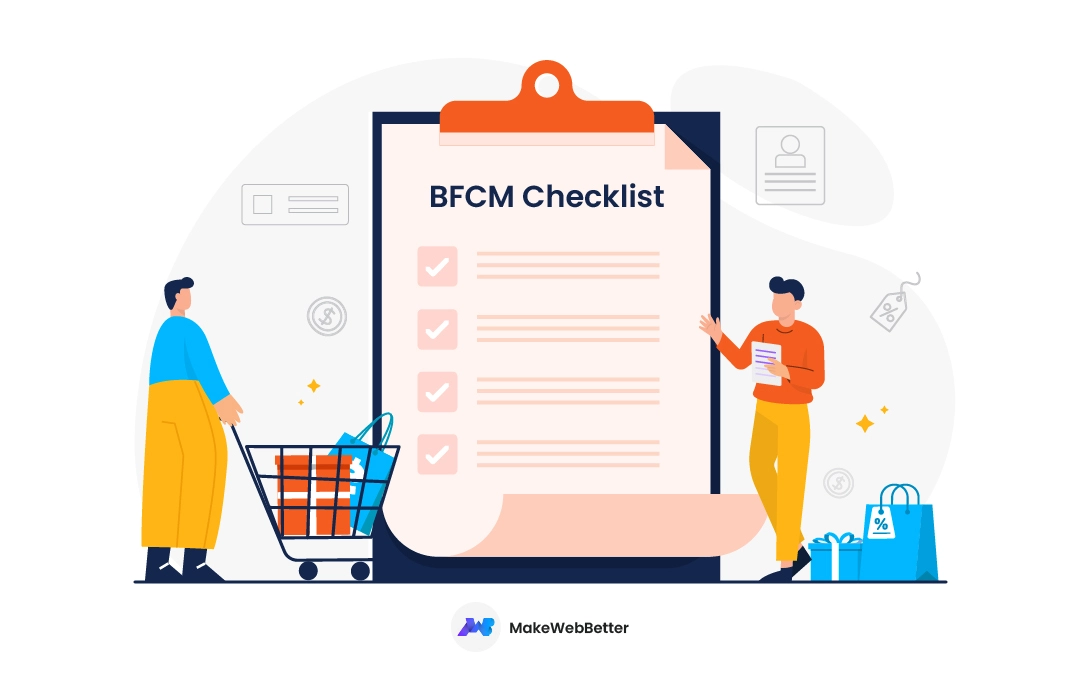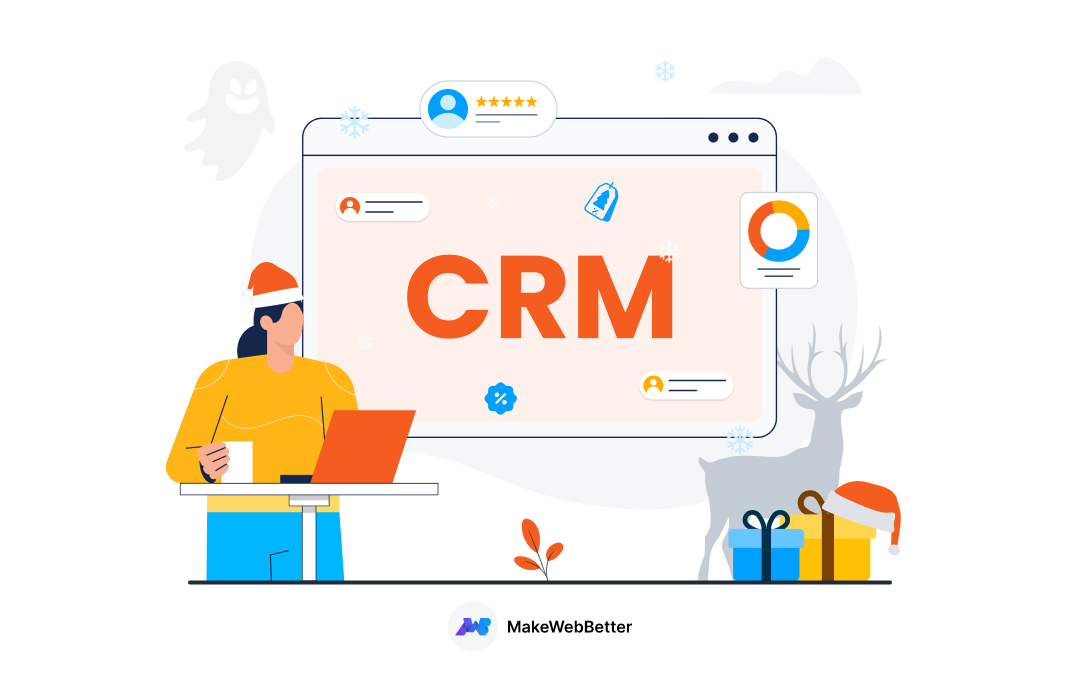The new generation of shoppers and entrepreneurs prefer online shopping and business platforms more than regular brick-and-mortar stores. The prevailing shift in trends demands the best eCommerce frameworks to come forward and take charge seeking that every eCommerce website needs a functional platform.
Global eCommerce sales are estimated to reach the $6.5 trillion milestone by 2023. (Statista)
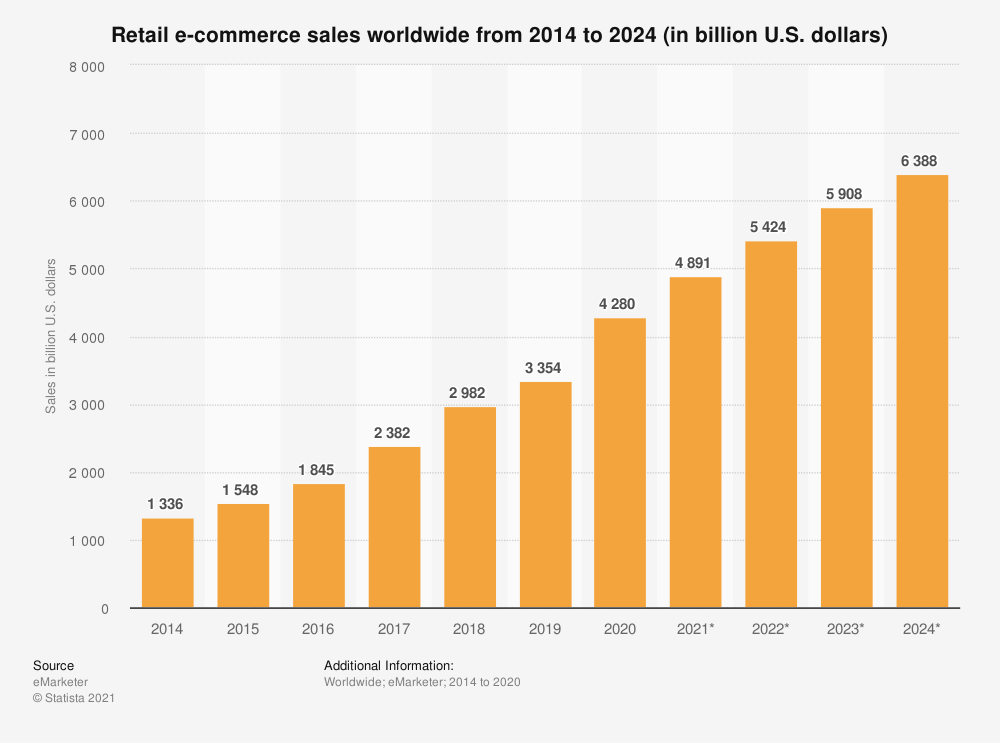
You might be an eCommerce-savvy shopper. Nonetheless, working and managing eCommerce websites can be intimidatingly impressive.
The most basic confusion can be, “How to choose the right eCommerce framework to build a strong foundation for your business?” because no two businesses have the same requirements.
Therefore, you foremost need to analyze your business requirements to finalize the perfect framework for your new online setup.
However, before proceeding with the best eCommerce frameworks, we need to clear out the approach of what is eCommerce framework and its types. This might also give you a friendly hand of support in making the right decision.
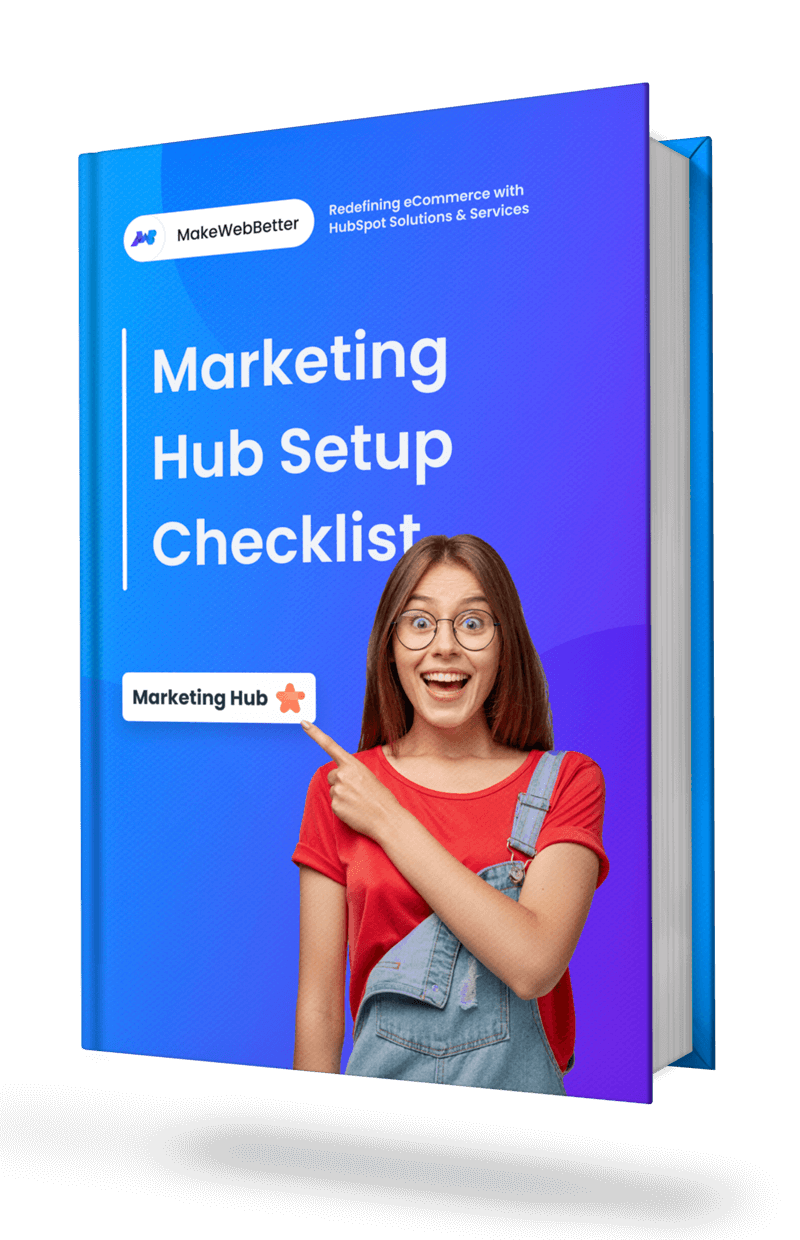
Free Download HubSpot Marketing Hub Checklist
Beginner-friendly HubSpot Marketing Hub Set up Guide to get your business started.
Table of Content
Without any further delay, let’s proceed!
What is an eCommerce Framework?
eCommerce Framework!
Many people confuse this term with programming frameworks. However, there aren’t many similarities between the two.
eCommerce framework(or eCommerce platform) term is used to refer to the software used for developing or building an eCommerce website. They lay the foundation of a website, upholding and running them with features like –
- Robust architectural features
- Security and maintenance services
- Operational functionality
- Design and development compatibility
- Website infrastructure functionality
- Analytic functionality
- Product and company viability, etc.
The eCommerce frameworks reside above the basic core-programming frameworks.
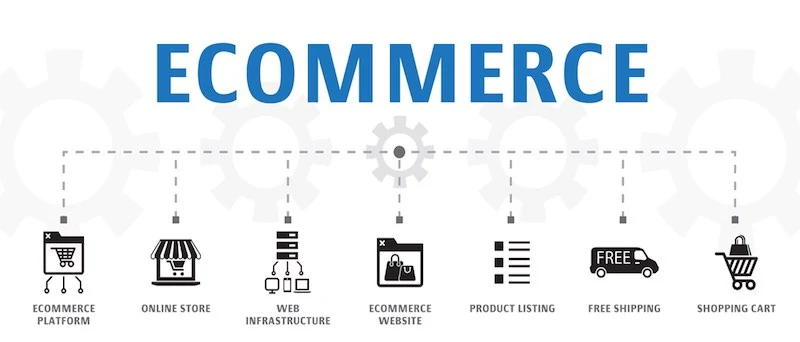
Source: groovecommerce.com
Types of eCommerce Framework
eCommerce frameworks come in three major variants to fit a specific business’s needs –
1. Open-Source eCommerce Framework
Open-source eCommerce frameworks allow users to access and modify the source code of their own software instance. This framework provides a high level of customization options to businesses.
The open-source framework is, hence, considered a good option for enterprise businesses having respective in-house teams of designers, developers, and website managers. Though there is no cost involved with the open-source eCommerce frameworks; they don’t include technical support as well.
|
Pros of Open-Source eCommerce
|
Cons of Open-Source eCommerce
|
|
|
|
|
|
|
|
2. SaaS eCommerce Framework
Software as a Service platform or SaaS eCommerce platform is based on a subscription model. In this framework, the user prefers to subscribe to the software that is hosted, managed, and improved by the vendor, himself rather than buying the software.
This framework is recommended for fast-scaling businesses and the recurring pricing model also scales with the growing business. The benefit of working with SaaS frameworks is that it includes technical support too in your subscription plan. Thus reducing the need of hiring an in-house team of designers and developers.
|
Pros of SaaS eCommerce
|
Cons of SaaS eCommerce
|
|
|
|
|
|
|
|
3. Headless eCommerce Framework
The headless commerce framework follows the composable architecture approach. This framework leverages a custom front-end with a dedicated eCommerce backend.
The drawback of working with this framework is that it is often complicated to develop and maintain websites. Yet, it is a recommended framework for businesses with very specific needs.
The best thing about the headless eCommerce framework is that it can be combined with either of the two frameworks – SaaS or open-source.
|
Pros of Headless eCommerce
|
Cons of Headless eCommerce
|
|
|
|
|
|
To determine the best eCommerce framework for your business, you must be clear with two prerequisites –
- eCommerce Business Model
- Website Requirements
eCommerce business model analysis is very critical. You must know your customer group first to determine the other requirements for building your eCommerce website.
For example, if you’re working on a B2B Business model, you are dealing directly with other businesses. Your store requirement in such a case will definitely differ from that of the B2C business model wherein you’ll be connecting with the end-users directly.
Once you have these prerequisites, it will be easier for you to choose the right eCommerce platform.
13 Best eCommerce Platforms for 2022
The market today is flooded with countless eCommerce frameworks.
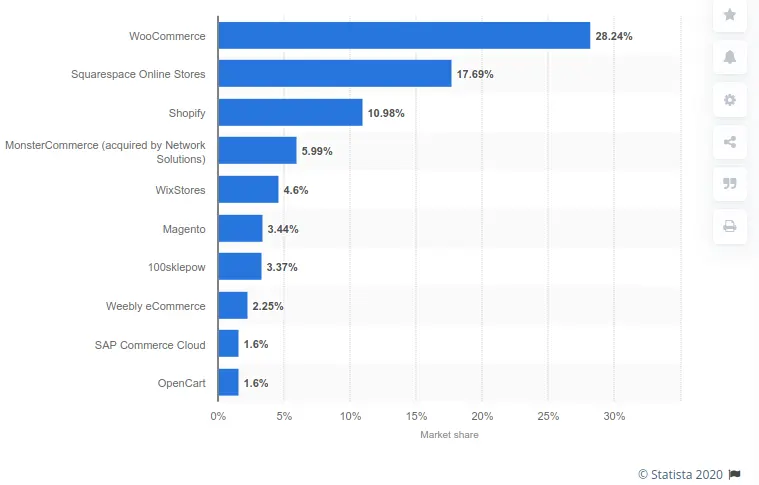
Therefore, bearing the extreme competition, all these frameworks constantly push for new features and functionalities. However, choosing the right platform out of all these best ecommerce frameworks majorly depends on –
- Your business model,
- Choice of products,
- Intent to scale,
- Abilities of your team, etc.
I know it is hard to list all the eCommerce frameworks together in one article. Therefore, I have curated this hand-picked list of the 13 best eCommerce frameworks for your online business.
a) Best SaaS eCommerce Frameworks in 2022
1. Shopify

Shopify is a self-hosted Software as a service platform. It provides strong and efficient features that make the website set up and store management easier. Also, the low-technical barriers offer better convenience for building out-of-the-box stores with basic functionalities.
It is not a free platform and therefore you need to pay subscription amounts for the non-native tools required. It is highly compatible with 4,100 apps and multiple themes.
Shopify is the “Biggie” of all the eCommerce platforms and has been able to successfully capture the major regions of the eCommerce industry. Approximately, 1 million+ websites are currently built on the Shopify platform.
Shopify has a market share of 31% in the United States for websites using eCommerce
2. Salesforce Commerce Cloud
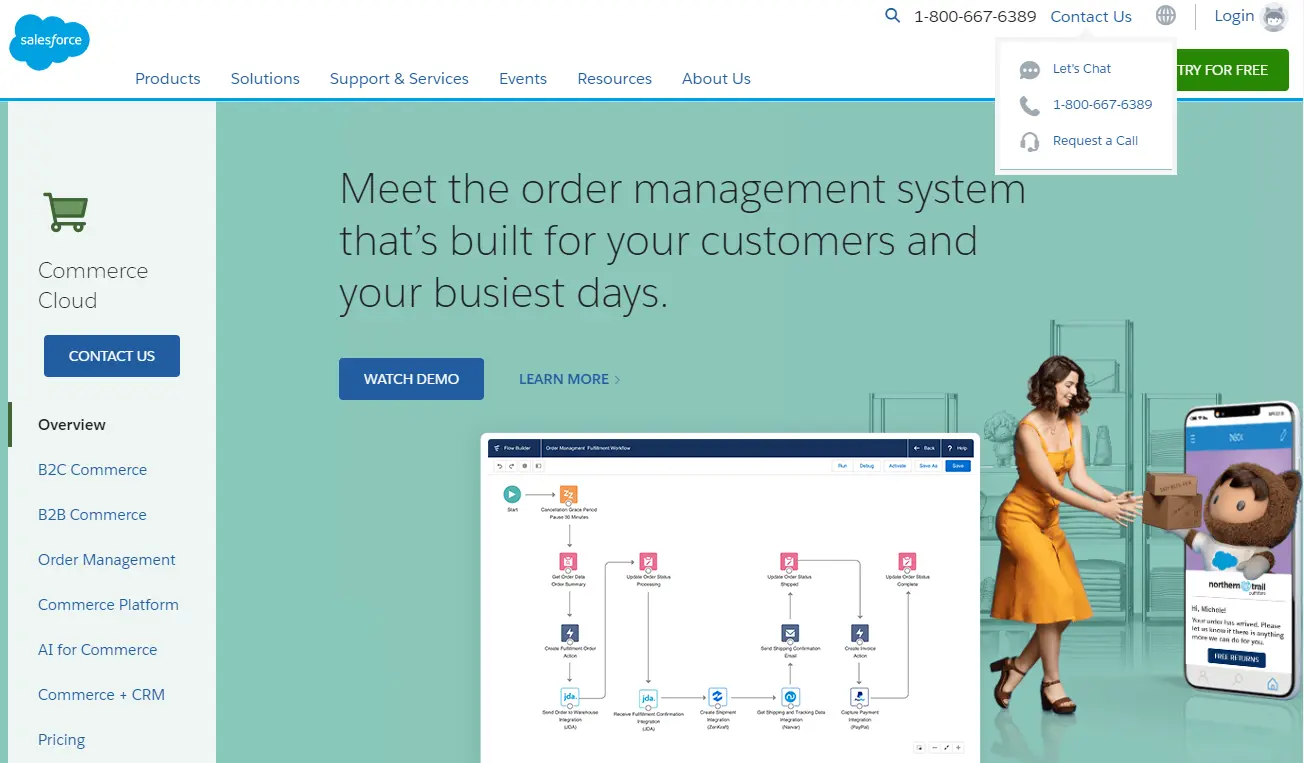
The Salesforce Commerce Cloud is also a SaaS-based platform. It aims to offer eCommerce businesses a platform to simplify their omnichannel operations.
This eCommerce platform provides a single solution to manage sales from physical and digital channels, both. And is certainly compatible with native AI tools to extend your store’s functionality. Salesforce commerce cloud pushes support for customization and personalization requirements too.
However, despite so many good features, it lacks in having multiple agency partners. Salesforce commerce is a relatively complex platform and building a store with them needs developers’ support. But the low number of their agency partners doesn’t leave you much choice.
3. HubSpot CMS
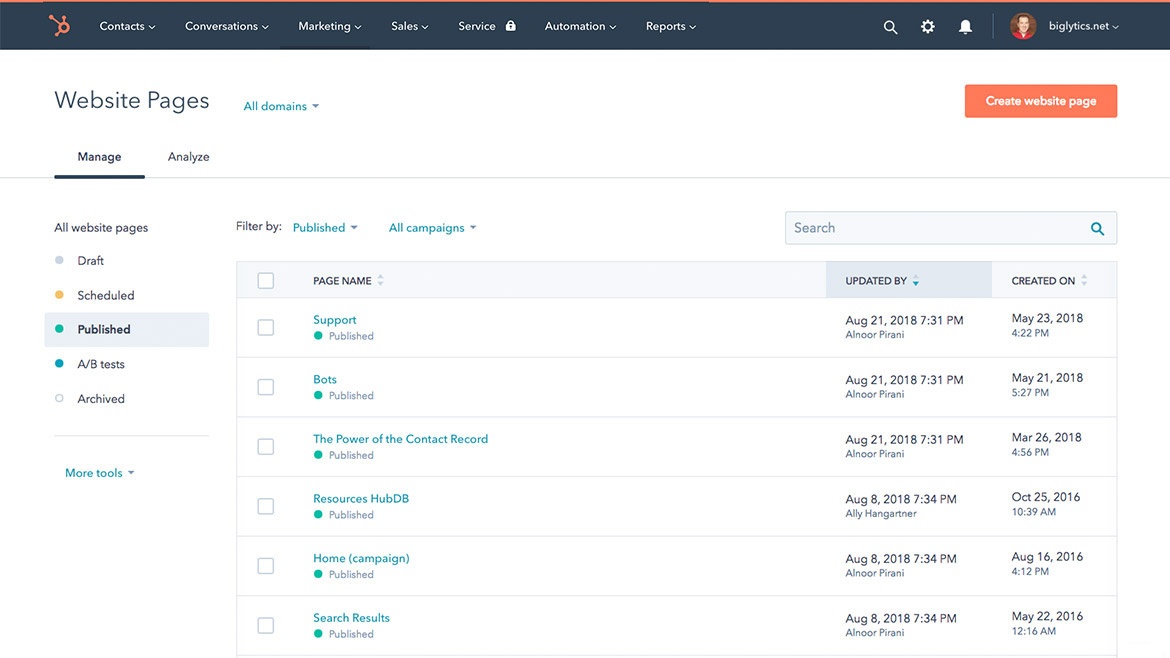
The HubSpot CMS is a cloud-based website builder and blogging platform that seamlessly integrates with HubSpot CRM to provide a 360-degree supportive environment for your online business to grow better.
This eCommerce platform has all the tools for marketers and developers for designing amazing websites that are responsive and focus on customer experience like email, analytics, marketing campaigns, blogging platform, SEO management, etc.
Also Read: Why Choose HubSpot CMS? A No-nonsense Guide
HubSpot CMS includes a plethora of features in its recently launched Free package along with exclusive features in other advanced packages. Yet, there are certain pros and cons too that you must review when making a choice.
4. BigCommerce
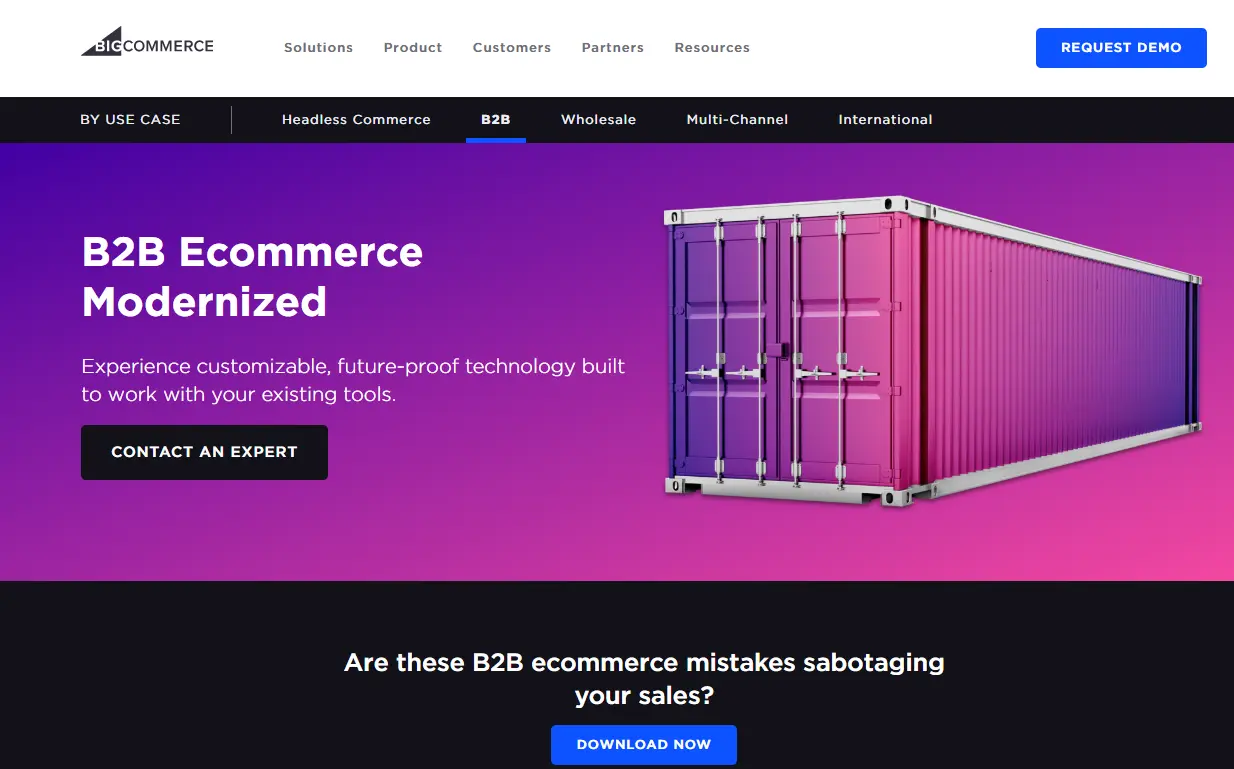
BigCommerce is the sole example of a SaaS-based platform that is flexible and acquires a higher learning curve than other SaaS eCommerce frameworks. It includes highly flexible APIs and renders powerful Headless commerce functionalities too.
The biggest advantage of working with BigCommerce is that it allows easy integration and extension of the core platform components to any other ecosystem or domain.
Additionally, with 24/7 global support, 1k+ partnered agencies, and quick access to marketplaces, it is the highly preferred platform to launch and maintain your online store.
Setup BigCommerce Website with the Goodness of HubSpot CRM
5. Volusion
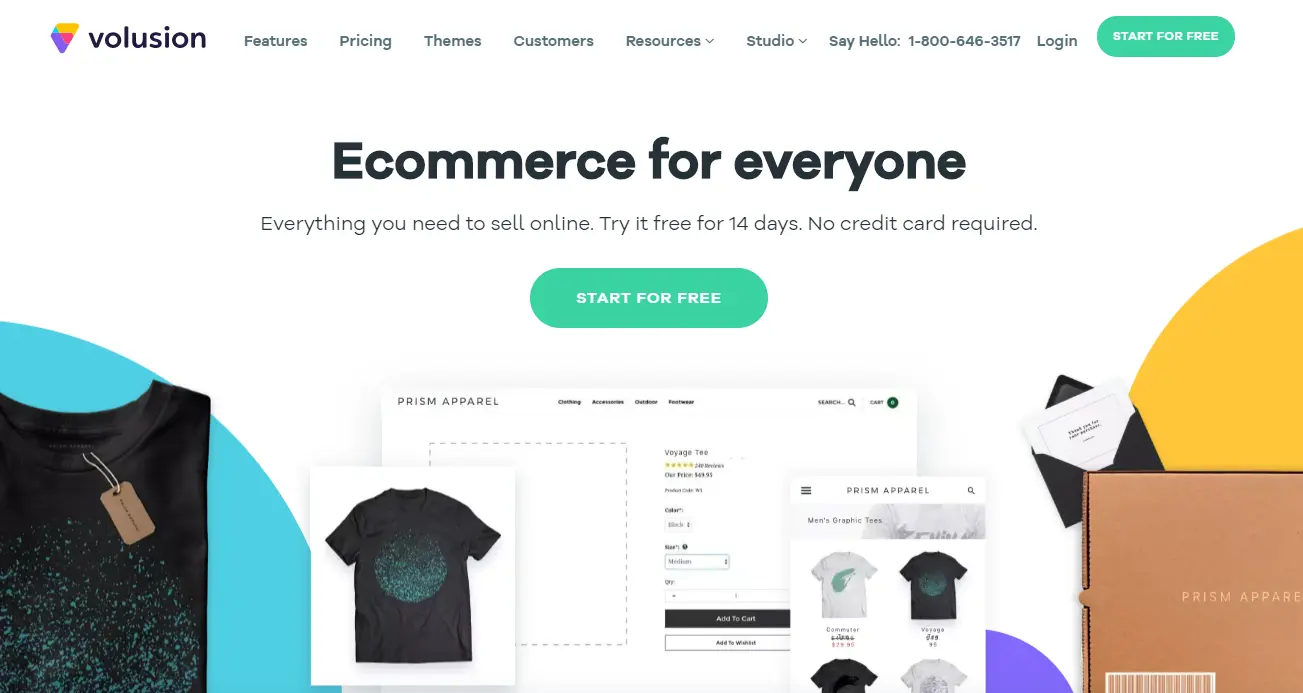
Volusion has been one of the primary runners in the race of SaaS eCommerce frameworks. It is in operation since 2000 and has already served multiple eCommerce giants(currently) in starting and setting up their eCommerce platforms.
The Volusion offers a composed eCommerce architecture with their shopping cart solution. It includes a mix of both – core commerce and marketing tools to provide one-stop solutions for beginners.
6. Squarespace

The Squarespace framework allows quick and simple website management functionalities without the requirement of third-party developers or designers.
It includes responsive website templates and built-in inventory tools. However, working with Squarespace needs a detailed run-through first with all the features and functionalities so you don’t miss out on the crucial elements for managing and growing your eCommerce business.
There are a few disadvantages too in this framework, i.e., it only allows integration with four payment processors. Also, their minimum value plan levies a 3% tax on each successful transaction. Therefore, it can result in you paying heavy commissioned charges for making better sales.
7. Wix

Wix is a SaaS platform geared toward small businesses. It is the most famous eCommerce platform owing to its ease of use and drag-&-drop features. It is a user-friendly low-cost website builder and offers website hosting, domain name registration, and customizable templates.
With Wix, building a basic website is free, however, to build an eCommerce store, you need to upgrade your plan. Another drawback with Wix is that it lacks critical inventory management tools like low-stock alerts and social commerce integrations.
8. Dynamics 365 Commerce
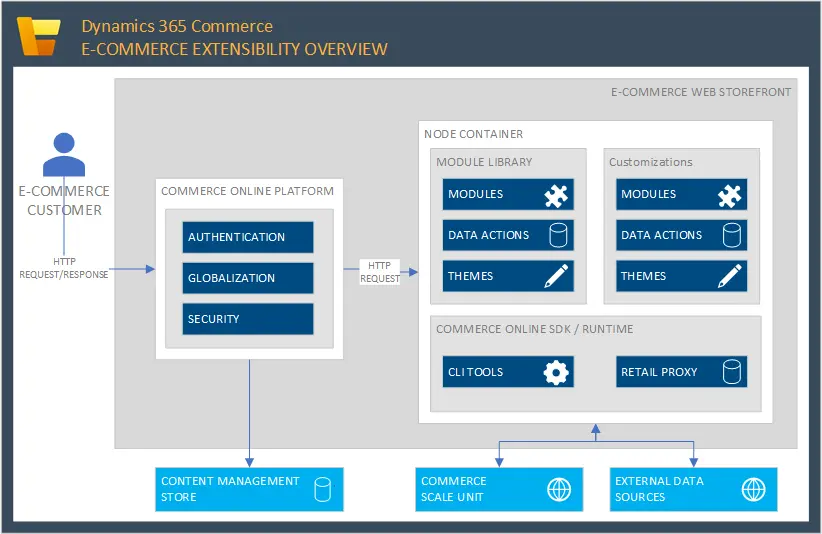
Dynamic 365 commerce is much similar to microservices CMS architecture. This eCommerce framework is a collection of multiple applications combined together to provide complete ERP (enterprise resource planning) solutions.
They aim to render their services to medium and large-scale businesses. This platform is highly flexible to the peculiar requirements of your business including capabilities to target multiple business segments at once. It is the recommended eCommerce framework for complex business structures or for multi-vendor businesses.
b) Best Open-Source eCommerce Frameworks in 2022
9. Zen Cart
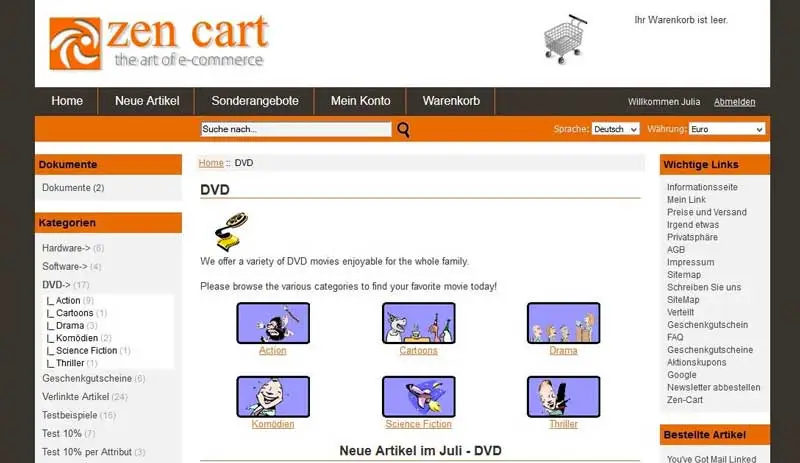
The Zen-Cart is an open-source, user-friendly, and free platform for eCommerce website development. This platform was developed targeting the user group with basic or no knowledge of computer skills. This platform includes integration to multiple payment gateways and also access to community-contributed modules of payments.
10. WooCommerce
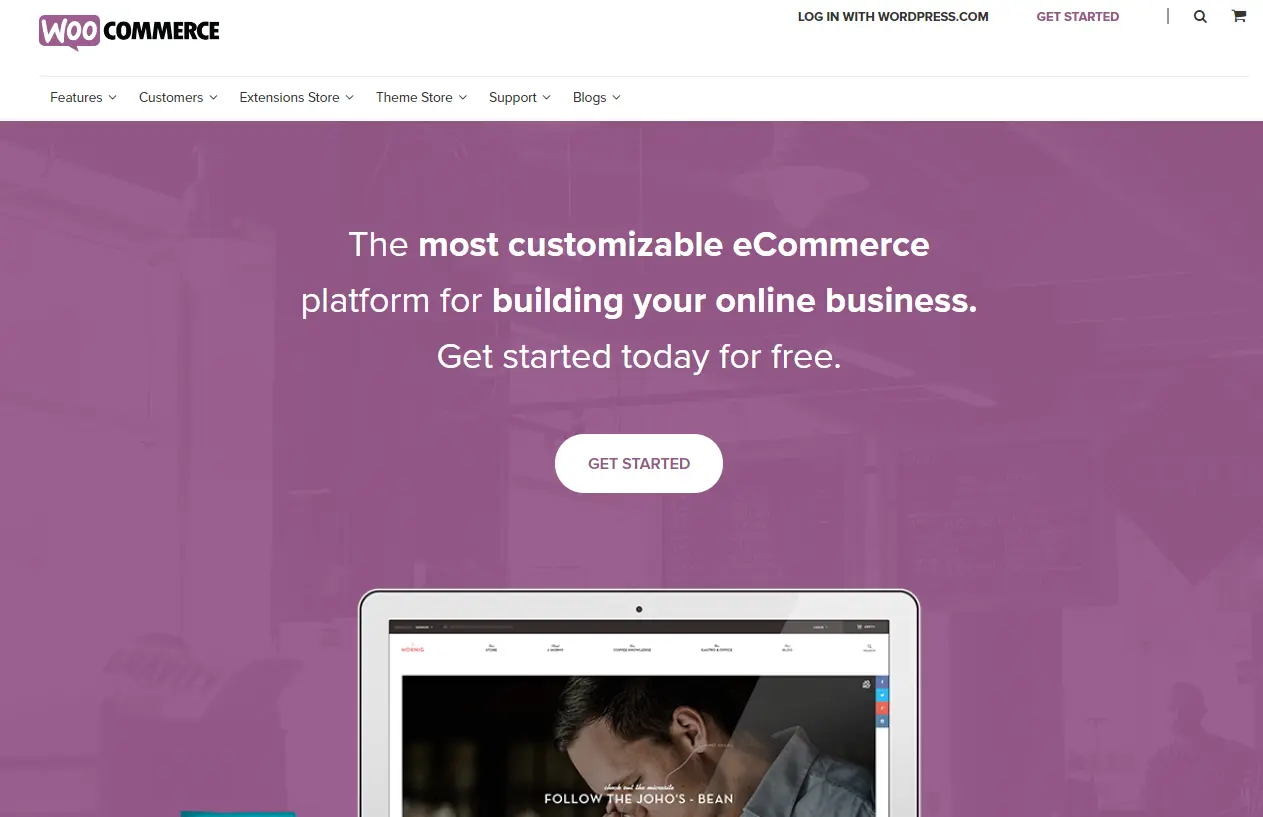
WooCommerce is a popular eCommerce framework for WordPress websites. It is a self-hosted, open-source platform comprising decent features to develop, manage and maintain your eCommerce website with ease.
Being open-source, it offers many customization and personalization features for designing a custom website. It also provides many store management features to run a smooth eCommerce website offering the best customer experience.
The only drawback of working with WooCommerce frameworks is that it doesn’t offer features like one-click checkout, abandoned cart recovery, payment and catalog management, etc. natively. But you can add these functionalities to your store with the help of plugins and addons.
Grow your WooCommerce Store with HubSpot CRM
11. Magento Commerce
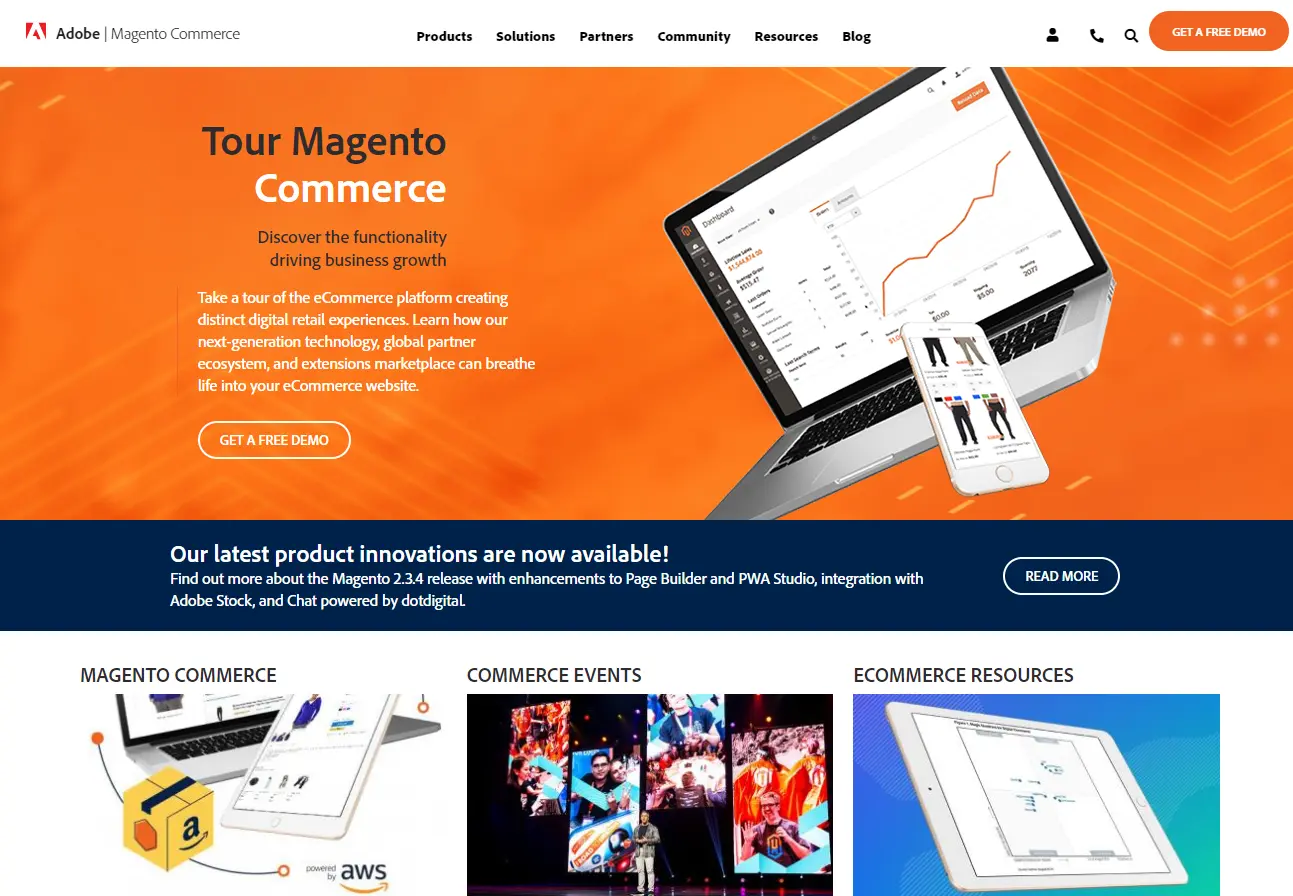
The Magento, Magento commerce, or Magento 2 – is a multi-named but single platform. It is designed with an open-source eCommerce framework and has the authority to be deployed on-premise, on your own servers, or in the cloud.
It is a highly flexible and scalable framework. Magento Commerce was recently acquired by Adobe Experience Cloud. Hence, it is also referred to as the Adobe commerce platform and thus can be integrated with Adobe eCommerce solutions like customer data platform, analytics, etc.
Build your eCommerce Store on Magento with HubSpot!
Although Magento has an impressive community of skilled and experienced developers, the businesses prefer to migrate off of Magento. Why?
Because it is quite complex to set up and manage a website with Magento despite the robust features it provides. Additionally, you are also liable to install your own system updates and security patches since you only have the access to the software instance.
12. PrestaShop
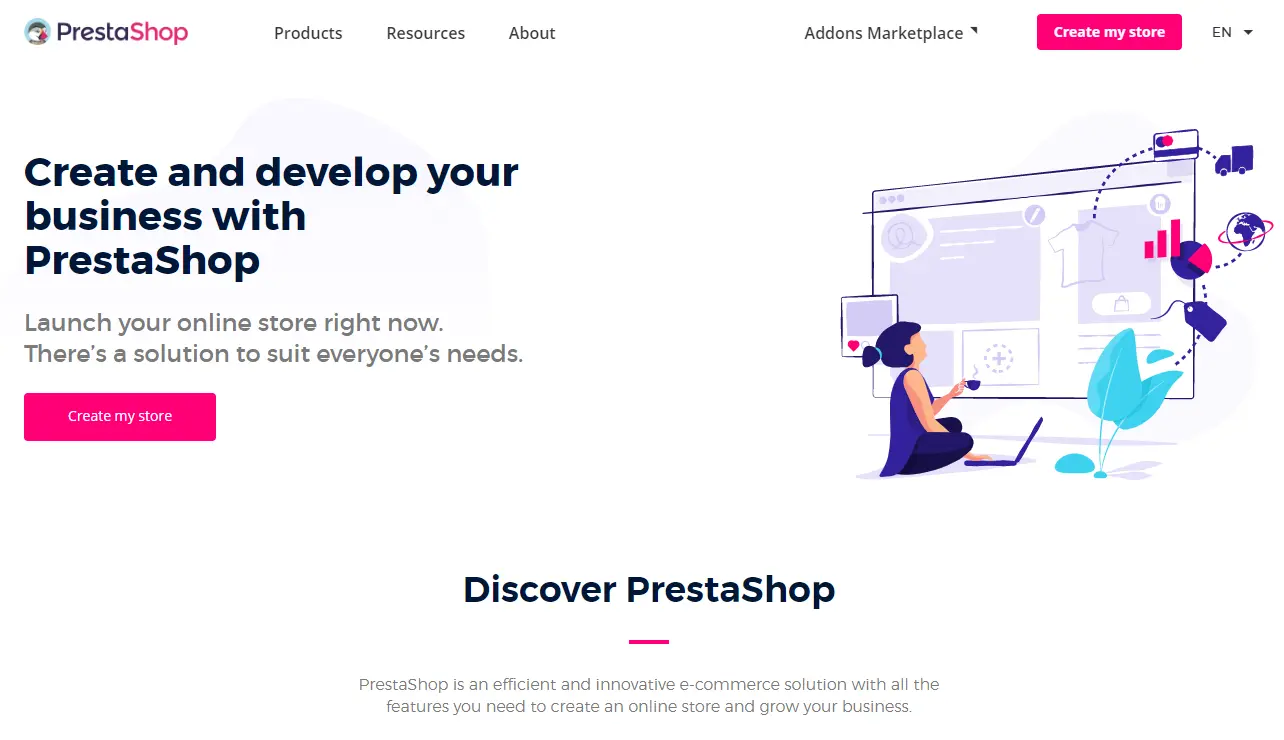
Another open-source platform that is free and easy to access is PrestaShop. Written in PHP programming language with MySQL DBMS support, PrestaShop currently has 300,000 websites running, globally.
However, it has a similar drawback to WooCommerce and Magento – that to add any extended functionality, you need to buy addons or plugins. Therefore, adding up to your cost, PrestaShop includes multiple sources of hidden costs.
13. OpenCart
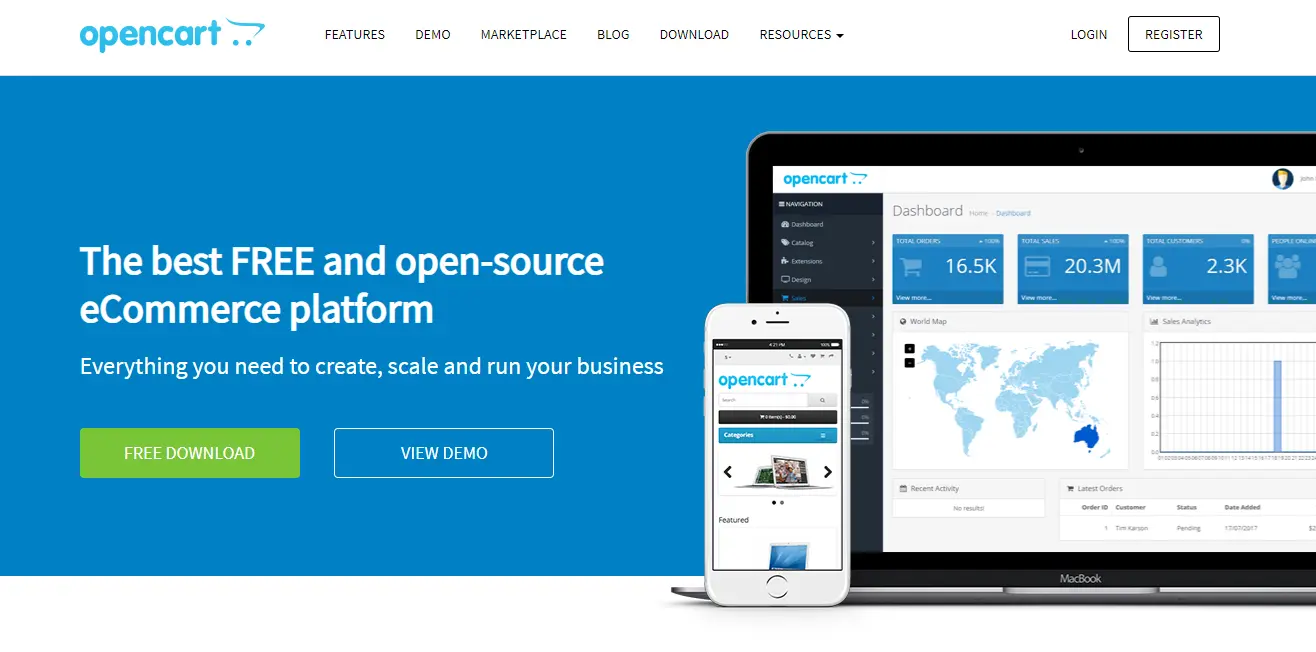
OpenCart is an open-source eCommerce platform specifically designed with store management features. It is compatible with over 20 payment gateways and renders support for 8 shipping methods.
This eCommerce framework is not new in the market and is successfully running 400,000 live websites, hence determining its strong customer base and efficient website management features.
You can freely download and use OpenCart but to extend your online store’s functionality, you need to pay for the themes, plugins, addons, and dedicated support.
Moving ahead from a different perspective, eCommerce platforms are also often categorized based on the business models like B2B or B2C. Here is a short list of eCommerce platforms for each business model –
|
B2B eCommerce Platforms
|
B2C eCommerce Platforms
|
|
|
Making the Right Choice: Which is the Best eCommerce Framework?
Though there will be subjective views on which is the best eCommerce framework, I have managed to include the top 13 eCommerce platforms –
- Shopify
- Salesforce Commerce Cloud
- HubSpot CMS
- BigCommerce
- Volusion
- Squarespace
- Wix
- Dynamics 365 Commerce
- Zen Cart
- WooCommerce
- Magento Commerce
- PrestaShop
- OpenCart
If you have read about each platform carefully, you’ll definitely understand that they are very different from each other. All these listed eCommerce frameworks target certain pain points and serve their customers around them.
Now, you must be thinking, “Can I build my eCommerce website for free?”
Well, yes, you can. Some open-source and even SaaS platforms include hidden costs but not all. There are eCommerce frameworks that are completely free like HubSpot CMS which includes your free hosting as well to develop a basic eCommerce website.
However, it is a recommended practice to go with the paid plans if you wish to have more flexibility and scalability options.
Looking for More Personalized Guidance?
Connect with our skilled consultants and brainstorm your business and eCommerce platform requirements, together!

